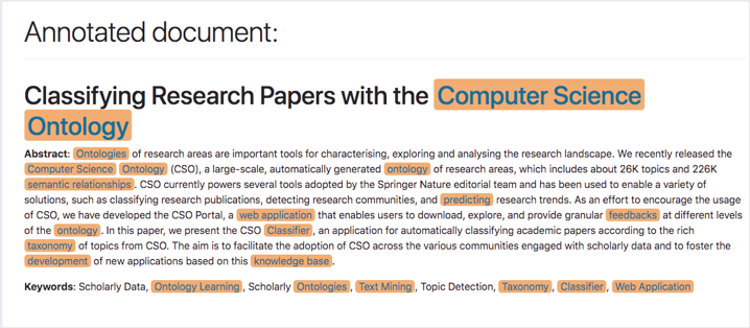The CSO Classifier is an application for automatically classifying academic papers according to the rich taxonomy of topics from CSO. The aim is to facilitate the adoption of CSO across the various communities engaged with scholarly data and to foster the development of new applications based on this knowledge base.
Tag: Scholarly Data
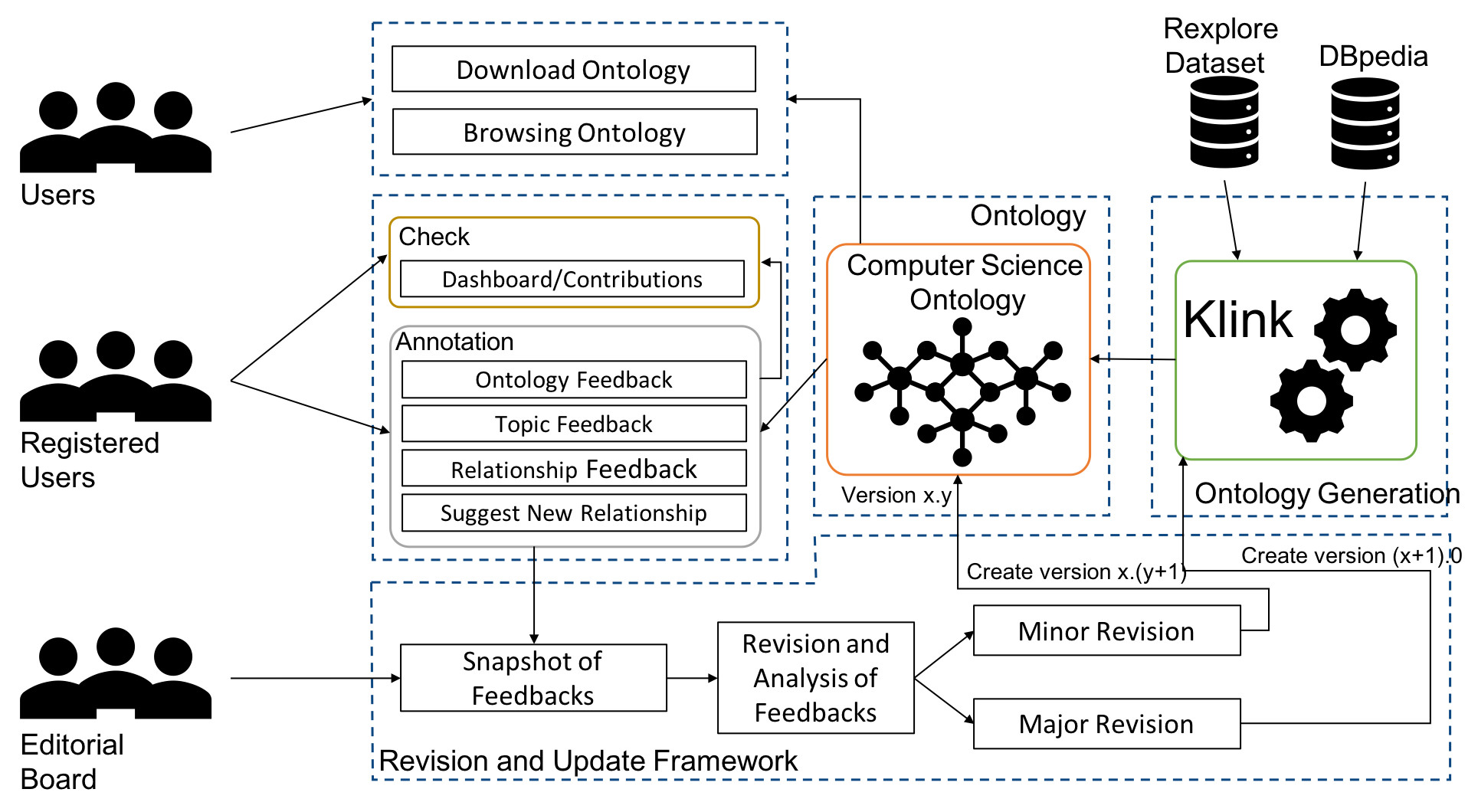
The Computer Science Ontology: A Large-Scale Taxonomy of Research Areas
Ontologies of research areas are important tools for characterising, exploring, and analysing the research landscape. Some fields of research are comprehensively described by large-scale taxonomies, e.g., MeSH in Biology and PhySH in Physics. Conversely, current Computer Science taxonomies are coarse-grained and tend to evolve slowly. For instance, the ACM classification scheme contains only about 2K research topics and the last version dates back to 2012. In this paper, we introduce the Computer Science Ontology (CSO), a large-scale, automatically generated ontology of research areas, which includes about 26K topics and 226K semantic relationships. It was created by applying the Klink-2 algorithm on a very large dataset of 16M scientific articles.

Springer Nature Hack Day – Berlin
On 26-27 April 2018, Francesco Osborne and I attended the third edition of the Springer Nature Hack Day, which was held in its headquarter in Berlin. The Springer Nature Hack Day is an event that allows researchers, developers, tech companies, and Springer Nature itself, to gather together and tackle current research issues. Offering also opportunities […]
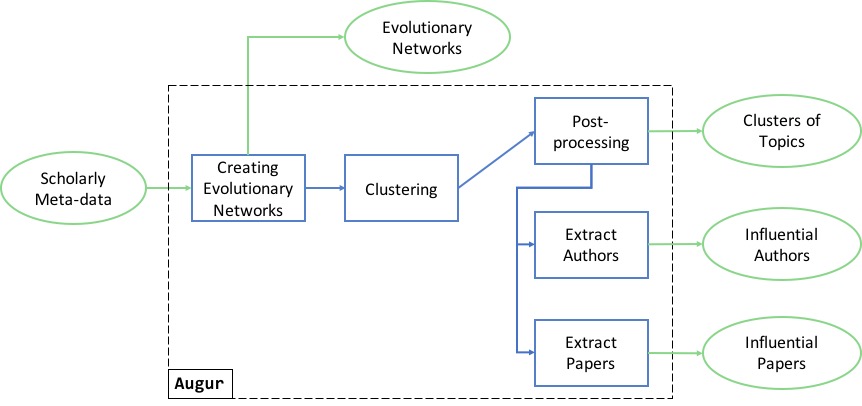
AUGUR: Forecasting the Emergence of New Research Topics
“AUGUR: Forecasting the Emergence of New Research Topics” is a paper submitted to the ACM/IEEE Joint Conference on Digital Libraries 2018, presented on June 5 2018, in Fort Worth, TX, USA Angelo Salatino, Francesco Osborne and Enrico Motta Abstract Being able to rapidly recognise new research trends is strategic for many stakeholders, including universities, […]
Springer Nature video
Couple of months ago, with my team, we attended the Springer Nature HackDay (here is the post). Just not long ago, Springer Nature released a short video featuring us. Summarised is also my interview, in which I discuss the advantages of making scholarly datasets, as SciGraph, available to anyone. Other media Building on the success […]

SpringerNature Hackday – London
On the 29th November 2017, myself with two KMi colleagues (Andrea Mannocci and Thiviyan Thanapalasingam) attended the second edition of SpringerNature HackDay in London (@ SpringerNature Campus). Aliaksandr Birukou, Executive Editor of Computer Science at Springer Nature and collaborator of our research team at the Knowledge Media Institute, also joined our group on the HackDay. The whole […]
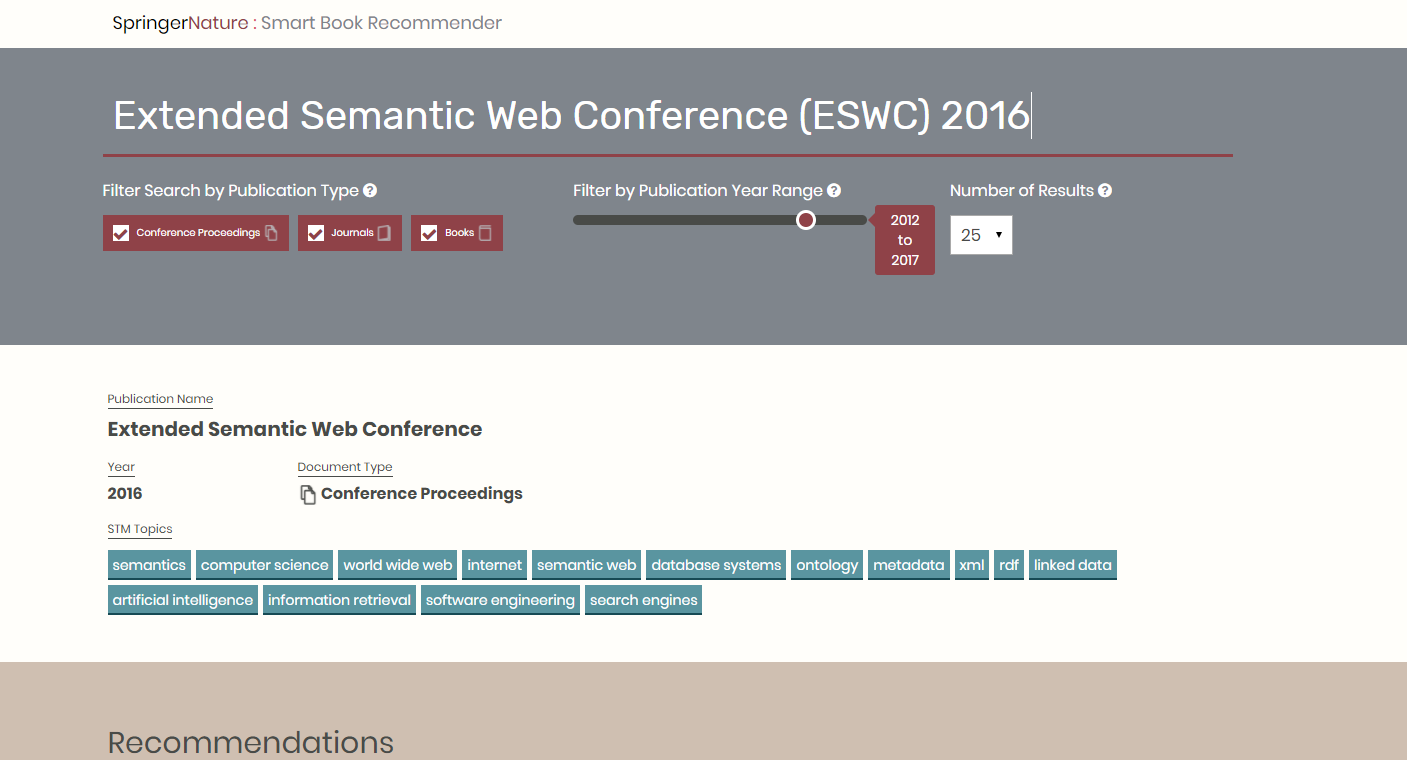
Smart Book Recommender
The Smart Book Recommender (SBR) is a semantic application designed to support the Springer Nature editorial team in promoting their publications at Computer Science venues. It takes as input the proceedings of a conference and suggests books, journals, and other conference proceedings that are likely to be relevant to the attendees of the conference in question. It […]
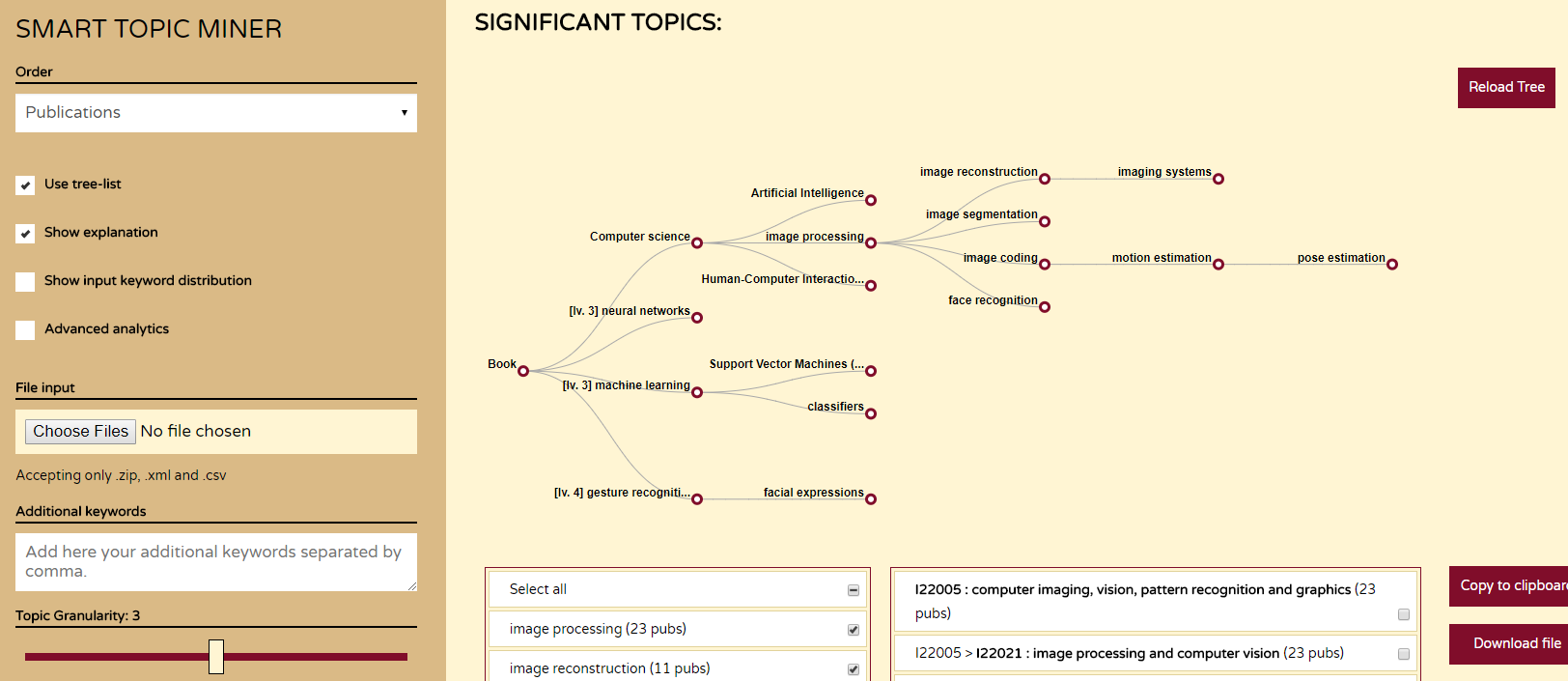
Supporting Springer Nature Editors by means of Semantic Technologies
“Supporting Springer Nature Editors by means of Semantic Technologies” is a research paper accepted to the Industry Track at the International Semantic Web Conference (ISWC) 2017 , 21-25 October 2017, Vienna, Austria. Authors Francesco Osborne, Angelo Salatino, Thiviyan Thanapalasingam, Aliaksandr Birukou and Enrico Motta Abstract The Open University and Springer Nature have been collaborating since 2015 […]

Smart Book Recommender: A Semantic Recommendation Engine for Editorial Products
“Smart Book Recommender: A Semantic Recommendation Engine for Editorial Products” is a poster paper that will be presented at the International Semantic Web Conference (ISWC) 2017, 21-25 October 2017, Vienna, Austria. Authors Francesco Osborne, Thiviyan Thanapalasingam, Angelo Salatino, Aliaksandr Birukou and Enrico Motta Abstract Academic publishers, such as Springer Nature, need to constantly make informed decisions […]
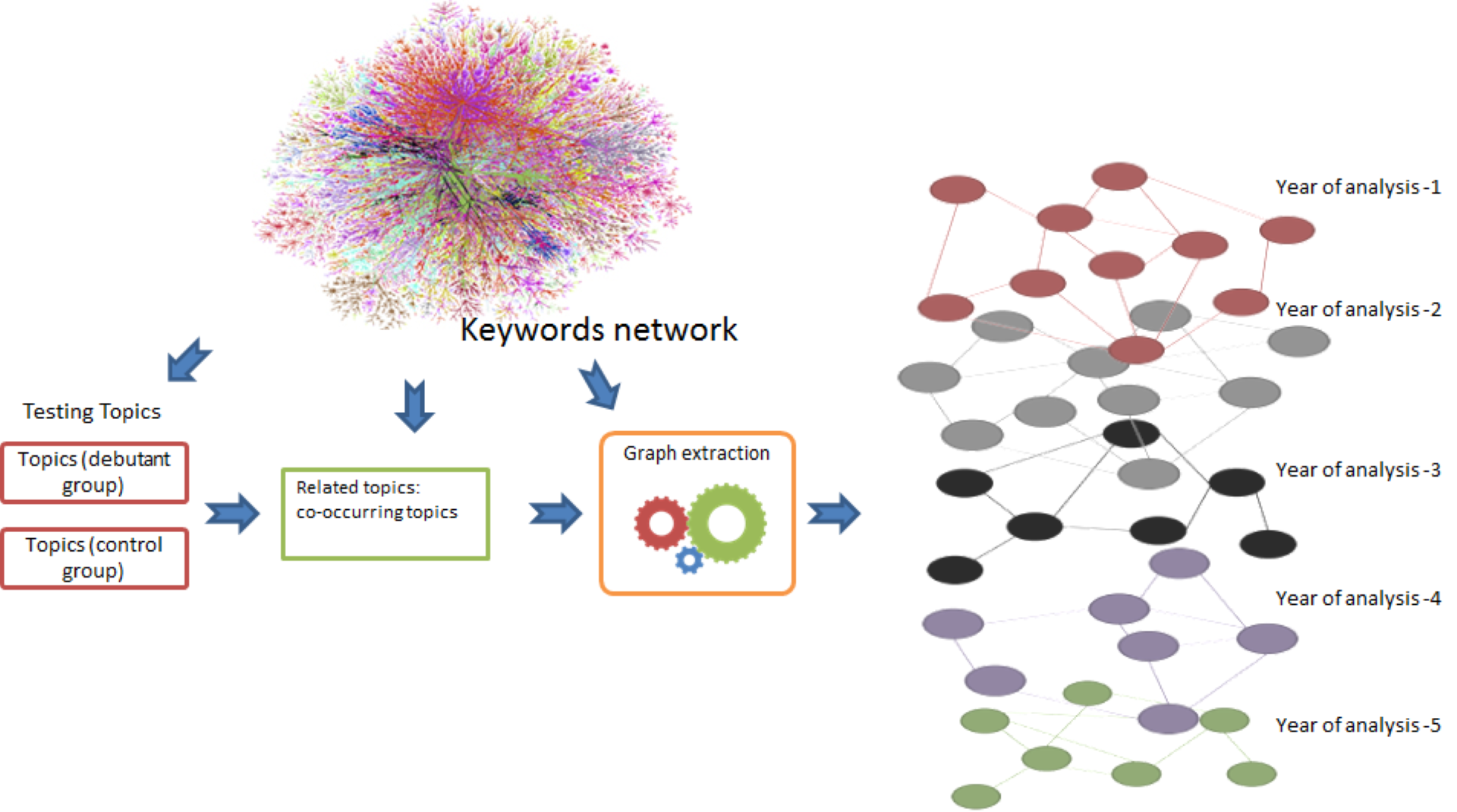
How are topics born? Understanding the research dynamics preceding the emergence of new areas
“How are topics born? Understanding the research dynamics preceding the emergence of new areas” is a peer-reviewed paper submitted to PeerJ Computer Science. The paper has been submitted in July 2016 and accepted in May 2017. All the co-authors are thankful to the reviewers and the editor for providing insightful comments and thus improving the […]
